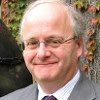Available Actors, Appropriate Action: TheoDramatic Formation and Performance (Vander Lugt, 2013)
The original PhD which was published as “Living Theodrama: Reimagining Christian Ethics” (Ashgate, 2014) which I reviewed in Studies in Christian Ethics. Other reviews in Theology and Themelios.
[embeddoc url="https://research-repository.st-andrews.ac.uk/bitstream/handle/10023/3728/WesleyVanderLugtPhDThesis.pdf" download="all" viewer="google"]


